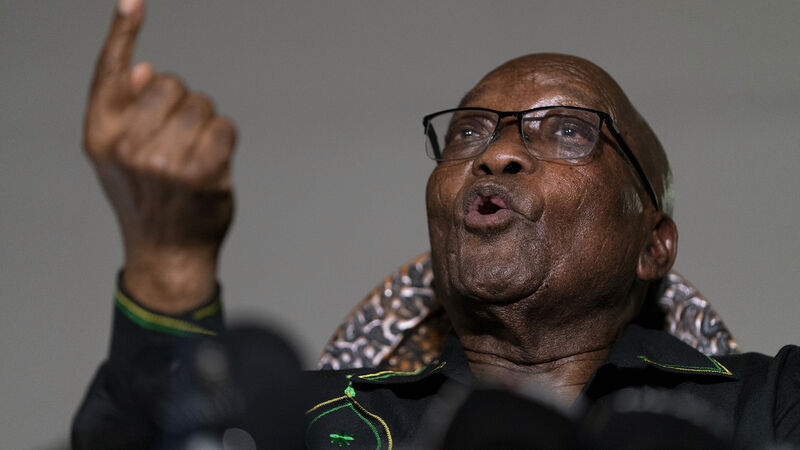Zuma’s imprisonment is a victory for South Africa’s post-apartheid constitution

Former president Jacob Zuma gestures as he addresses the press at his home in Nkandla, KwaZulu-Natal Natal Province, Sunday, July 4, 2021. Zuma told hundreds of supporters gathered outside his rural estate that he is appealing his 15-month prison sentence and impending arrest by police. South Africa’s top court, the Constitutional Court, last week sentenced Zuma to prison for defying a court order that he should testify before a commission investigating allegations of rampant corruption when he was president from 2009 to 2018. (AP Photo/Shiraaz Mohamed)
Last Wednesday, at 45 minutes to midnight, Jacob Zuma blinked. In what was the most consequential moment for the rule of law in post-apartheid South Africa, the former president handed himself into police.
Zuma was, in fact, three days late. The apex constitutional court ruled last week that he must surrender himself by the previous Sunday on a charge of contempt of court, after repeatedly refusing to appear before a statutory commission looking at allegations of corruption made against him.













